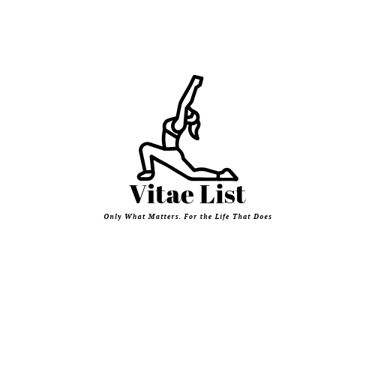Supplements vs Whole Foods: What’s Best for Strength Athletes?
Supplements vs whole foods—what’s the best fuel for strength athletes? Learn how to balance protein powders, creatine, and vitamins with real food for recovery, performance, and long-term gains.
NUTRITION
Vitae List
10/7/20253 min read


Supplements vs Whole Foods: What’s Best for Strength Athletes?
Disclosure: Vitae List is a participant in the Amazon Services LLC Associates Program, an affiliate advertising program designed to provide a means for sites to earn fees by linking to Amazon.com and affiliated sites. As an Amazon Associate, we earn from qualifying purchases at no extra cost to you.
Whole Foods vs Supplements: The Ongoing Debate
Strength athletes often face the same question: Should I stick to whole foods, or are supplements the key to unlocking performance and muscle growth?
The truth isn’t black and white. Supplements and whole foods both play roles in supporting strength, endurance, and recovery. Whole foods provide the foundation for health and energy, while supplements can help fill gaps or give a performance edge.
Understanding when and why to use each is critical for building sustainable strength.
The Case for Whole Foods
Whole foods should always be the backbone of a strength athlete’s diet. They provide:
Balanced Nutrition: Whole foods deliver protein, carbs, fats, fiber, vitamins, and minerals in synergy.
Digestive Health: Natural fiber and phytonutrients support gut health and nutrient absorption.
Satiation: Real meals keep you fuller longer compared to shakes or pills.
Performance Longevity: A diet rich in whole foods supports not only strength but also immune function, hormonal balance, and recovery.
📌 Examples of strength-supporting whole foods:
Proteins: chicken, salmon, lean beef, eggs, Greek yogurt, lentils.
Carbs: rice, oats, sweet potatoes, bananas, beans.
Fats: avocados, olive oil, nuts, seeds, fatty fish.
Micronutrient powerhouses: leafy greens, berries, citrus, cruciferous vegetables.
Whole foods provide what supplements can’t: the full nutritional picture.
The Role of Supplements
Supplements are not magic pills, but they can be powerful when used strategically. For strength athletes, they serve three main functions:
Convenience – A protein shake is faster than cooking a meal post-training.
Targeted Support – Supplements like creatine or beta-alanine support specific adaptations.
Filling Gaps – Vitamin D, omega-3s, or magnesium can make up for dietary shortfalls.
Popular Supplements for Strength Training
Whey Protein: Fast-digesting, great for post-workout recovery.
Creatine Monohydrate: One of the most researched supplements, boosting ATP production for strength and power.
Caffeine: Enhances focus and performance during tough sessions.
Omega-3s: Support joint health and reduce inflammation.
Vitamin D: Key for bone strength and hormone support.
Electrolytes: Replace minerals lost during sweat-heavy training.
📌 Takeaway: Supplements are tools, not replacements. They’re most effective when layered on top of a strong whole-food foundation.
The Strength Athlete’s Dilemma: Time vs Performance
Strength athletes often juggle work, training, and recovery. Sometimes, convenience wins out. That’s where supplements shine.
Busy day? A protein bar and whey shake prevent missed nutrition windows.
Heavy training block? Creatine, electrolytes, and adequate carbs help push through fatigue.
On the road? Supplements ensure consistency when meal prep isn’t possible.
However, relying too heavily on powders and pills at the expense of whole foods can compromise long-term health, digestion, and nutrient diversity.
Building a Balanced Approach
When to Prioritize Whole Foods
Main meals (breakfast, lunch, dinner).
Recovery meals when time allows (chicken, rice, vegetables).
Long-term nutritional health.
When to Lean on Supplements
Immediately post-workout (whey + banana).
During busy work or travel days.
To address specific deficiencies (vitamin D in winter, omega-3 if diet lacks fatty fish).
Practical Guidelines
80/20 Rule: Aim for 80% of nutrition from whole foods, with up to 20% from supplements.
Quality Matters: Choose third-party tested supplements to avoid fillers or contamination.
Don’t Double Up: If your diet covers a nutrient, extra supplementation won’t necessarily improve performance.
Example Daily Nutrition: Whole Foods + Supplements
Breakfast: 3 scrambled eggs, oats with blueberries, black coffee.
Mid-Morning: Whey protein shake with banana (supplement for convenience).
Lunch: Grilled salmon, quinoa, steamed broccoli, olive oil drizzle.
Pre-Workout Snack: Rice cakes with peanut butter.
Post-Workout: Whey protein + frozen fruit smoothie (supplement + whole food combo).
Dinner: Chicken stir-fry with rice and vegetables.
Before Bed: Greek yogurt with walnuts and honey.
Supplements layered in: whey (for convenience), creatine (5g daily), omega-3s, vitamin D.
This balance ensures whole foods fuel most of the diet, while supplements plug in where needed.
Common Myths About Supplements and Whole Foods
“Supplements are better than food.” – False. Whole foods provide synergistic nutrients supplements can’t replicate.
“If you don’t take supplements, you can’t grow.” – Wrong. Plenty of strong athletes rely primarily on whole foods.
“Natural diets don’t need supplements.” – Misleading. Many athletes fall short on vitamin D, omega-3, or protein without help.
“More supplements = more gains.” – Overdoing it can waste money and strain your system.
The Bottom Line
Strength athletes thrive when they blend both worlds: whole foods as the foundation, supplements as the support.
Whole foods = complete nutrition, long-term health, and performance longevity.
Supplements = convenience, targeted support, and performance boosts.
Don’t think of it as supplements vs whole foods—think of it as supplements with whole foods. When strategically combined, you’ll recover faster, lift heavier, and perform better for years to come.
